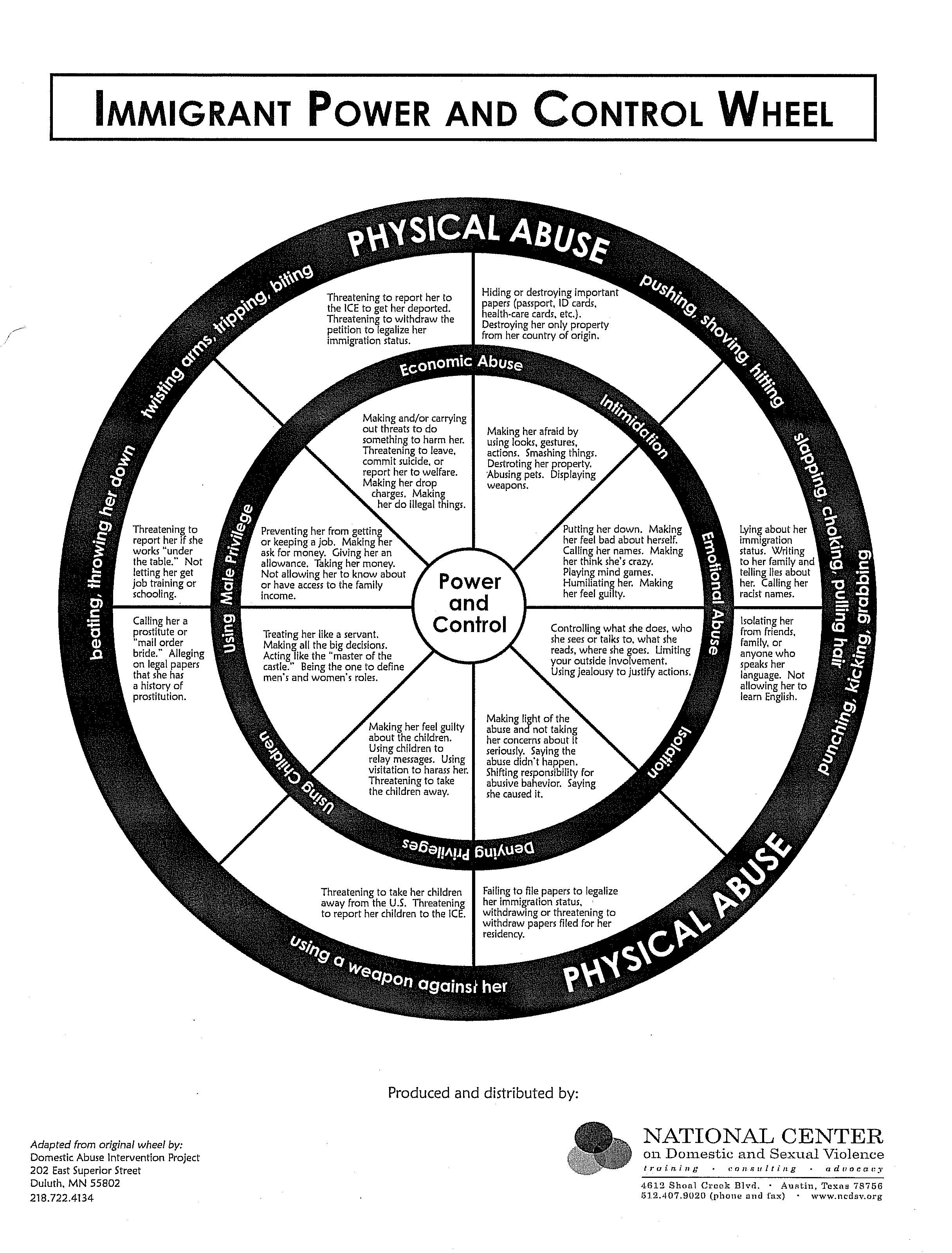Domestic Violence Amongst Immigrant Women

Imagine moving to a foreign country with your family. You don’t know anyone and can barely speak the language. Now imagine being the victim of domestic abuse in addition to all of this. Immigrant women who are experiencing intimate partner violence can have added barriers to gaining safety due to vulnerabilities, misconceptions, fears related to citizenship status/residency and differing cultural norms. The dynamics of abuse for immigrant women may have added elements, and as a community it is important for us to understand this in order to help them the best way we possibly can. Education is also imperative for the women because many may not even know their rights and options.
Facts:
All people in the United States, regardless of immigration or citizenship status, are guaranteed basic protections under both civil and criminal law. Under U.S. law, any crime victim, regardless of immigration or citizenship status, can call the police for help or obtain a protection order.
_________________________________________________________________________________________________________________________________________________________
According the United States Citizenship & Immigration Services (U.S.C.I.S.) regardless of status, immigrant women have the right to:
• Obtain a Protection From Abuse order (PFA) for themselves and their children.
• Seek a divorce in accordance to their local laws.
• Share certain marital property.
• Ask for custody of child(ren) and financial support from their spouse.
• Access help provided by government or non-governmental agencies, which may include: counseling, interpreters, safety planning, emergency housing and even monetary assistance.
Community Overview
Things to take into consideration when assisting an immigrant survivor of Intimate Partner Violence are….
• They may have a different view of what constitutes Domestic Violence. It can be accepted in their native country, culture, or family. They may not think it is illegal. They may also think that it actually falls in line with their religious practices–Honor Killings are an extreme example of this.
• Some cultures may view a wife as being a husband’s property. (In addition to the husband viewing his wife as his property, other people within the culture such as family or friends that the survivor may turn to could also hold this view as a norm. In turn, the survivor may also believe this to be true, even once in the United States.)
• They may not understand the laws in this country concerning Intimate Partner Violence.
• They may not think that they can call the police or be eligible for police protection.
• Language barriers put them at an increased safety risk when seeking help: Language barriers can lead to police not immediately understanding clearly who the primary aggressor is or how severe incidences may be.
• The woman can get a Protection From Abuse order and can call the police to enforce it if her abuser violates it– regardless of citizenship status.
For many immigrants, a tight knit immigrant community can be a wonderful benefit in acclimating to a new country. When a woman and her abuser are immigrants, this community can actually work against maintaining a survivor’s safety. Even with legal protections being provided, the woman can risk losing her religious or community ties if she leaves the community that she and her abuser are a part of. If she remains in the community, then there is the risk that she will not be able to avoid her abuser- they may both be familiar with only the same neighborhoods, community, and resources. Much like many women who are experiencing intimate partner violence, losing important cultural, religious, and social ties can make immigrant women hesitant to leave an unsafe situation. For a woman who does not speak English, it can be tremendously hard for her to leave what may be the only community that can communicate with her. Though hard, it is necessary, because many times she may share this community with her abuser.
In some cases, women experiencing Intimate Partner Violence are prevented by their abuser from forming any ties to whatever immigrant community may be present in their new area. Isolation can be a tool used by abusers in many Intimate Partner Violence situations but for immigrant women the issues are magnified and isolation can be extreme.
Abusers of immigrant women may use tactics such as not allowing the woman to learn to speak, read or write in English, withholding important official documents regarding her immigration status, destroying important documents regarding immigration status, lying about her status to her to keep her scared and dependent, and threats about the children’s custody based on inaccurate information. These challenges apply to women living in the U.S. legally or illegally. Their abuser may threaten to accuse them of a crime, which causes extreme fear if immigration status is also a concern for the woman. If an immigrant woman’s abuser accuses her of a crime she has basic rights, regardless of her status, to a lawyer and the right to not answer questions without a lawyer present.
The Immigrant Power and Control Wheel is a good tool for understanding some specifics that can occur in instances of Intimate Partner Violence with immigrant women.
(Click on the image for easier viewing)

It is harder for immigrant women to reach out for help if they do not know anyone, cannot speak the primary language, or do not know their rights. Frequently, billboards and hotline advertisements are in English and the woman may not understand them. In some areas, translation services may not be readily available. In the case that the survivor is not in an area where bilingual shelter or supportive services are readily available, it can be helpful to have the woman call the National Domestic Violence Hotline (NDVH) to access an interpreter and then call her local Domestic Violence services. In the case of our agency, at this time it can be helpful for women who do not speak English or speak limited English to contact the NDVH for interpretive services and then connect to our 24-Hour Hotline at 412-687-8005. If at all possible, helping a woman to say her name and what language she speaks in English could be a valuable tool. As with all Domestic Violence situations, it is important for the survivor to not leave information, numbers, pamphlets or any information that the survivor is using to seek assistance in a place that her abuser can easily access. In some cases, even evidence of learning English, phone numbers, or connections to immigrant services may cause the danger of her situation to increase.
Safety Planning:
Encourage immigrant victims to safely gather documents that the abuser may want or try to hold against them. These can include: immigration papers for themselves or their children, birth certificates, marriage licenses, passports, Identification, etc. It may also be helpful for them to gather letters and family photos. Many times abusers do try to hold these items.
• Remember the woman can get a Protection From Abuse (PFA)
• She can call the police to enforce a PFA if her abuser violates it regardless of citizenship status
• Educate on her on her rights (and her children’s rights)
• Respect cultural norms while sharing available options
Our local 24-Hour Hotline is an available tool, free at 1-877-338-TALK (8255) and locally at 412-687-8005.
The National Domestic Violence Hotline is available 24/7 at 1-800-799-SAFE (7233)
If you have questions about immigrant rights to utilize government or non-profit services you can access the United States Citizenship and Immigration Services at U.S.C.I.S. at 1-800-870-3670.
Other forms of exploitation can occur simultaneously with Intimate Partner Violence amongst immigrant women. Information on human trafficking is available at The National Human Trafficking Resource Center: 1-888-373-7888.




